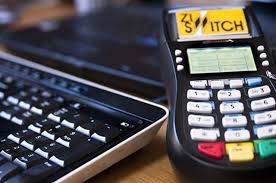A few months ago I wrote an article on the definition of assets and why investing in assets was encouraged for wealth building. This article is all about one of the best types of assets you can own, productive assets. The equipment hires business is an effective way of acquiring assets and putting them to work for you with minimal effort on your end in many cases. Let’s look at some tips and pointers for the equipment hire business.
For the purposes of this article, I will switch between different types of equipment hire to explain principles as the purpose is to look at equipment hire opportunities as a whole. Examples are to be taken in context and for the principle. Equipment hires businesses are based on the idea that there are items people and businesses will need to use but may be unable or unwilling to make an investment in. This may be because the items are only used occasionally or the outlay required does not make financial sense. Whichever the case this is a lucrative environment.
Some great examples these businesses are party hire, catering equipment, compressors in mining, car hire, construction equipment, hardware & tools, audio equipment, cameras and this is honestly naming just a few.
Market
Your market can be easily segmented into businesses (B2B) and individuals (B2C) and in some cases, your approaches to the two will have to vary. It depends on the type of equipment as some can be used continuously (Hwindi, for example, hires cars) while some equipment is only required for occasions (party equipment can easily be only requested on occasions).
Marketing
Your marketing efforts will need to be multi-faceted. I’ve never believed in too much marketing and this business is a perfect example. In the equipment hire business, your worst enemy is downtime, that is the time when your equipment is not out for hire. You will need to mix many advertising and marketing channels. Having a standing classified advert is a good idea. Where applicable having social media showing off your equipment in use is advantageous. Those involved in party hire, catering equipment, children’s inflatables and the like will benefit from this showmanship. You need to make the decision easy for your prospects.
Pricing
In economics, there’s a principle known as rent-seeking. This is a behaviour where suppliers of products will simply look at what they can get in the market and charge that. It is so named because of the behaviours of landlords in similar buildings or neighbourhoods who charge rentals based on what they can get rather than what they need or the value they provide. As much as this practice is frowned upon this is exactly what you need to do in this business.
Of course, there are other factors to consider in pricing. You will have to consider the useful life of your asset or equipment and a suitable payback period. Say you buy an item for US$1500 and expect to pay back within 6 months and it has a useful life of 3 years. Assuming it has constant hire you would need to charge at least US$160 per month to make payback. Maintenance costs are also important and must be factored in. Insurance is another important part of this business and it is likely to cost you big time because of the intended use of the equipment. All in all, you must factor these elements when looking at what the market charges for similar equipment hire. If your product is new on the market you will have to consider all the above plus a margin and then go to your market with tentative pricing until you find your feet.
Speaking of margins here are some indicators of margins you can expect in various types of equipment hire. These are operating margins (net profit). The construction and industrial equipment hire businesses average margin of 9.1% compared to general tools 7.5% and Party & event hires 4.5%. Very healthy returns. The economy may have an effect on these figures.
Finally, security deposits are common practice and essential in this business. This especially applies to cases where the equipment is hired out by itself without your involvement. Situated items would likely require smaller security deposits than the easily moveable. It’s very important to have reasonable security. Inspections on both dispatch and receipt must be thorough.
Maintenance and repairs
Routine maintenance is a must in this business. Equipment for hire is much like the goose that lays the golden eggs, you want to keep it alive for as long as possible. Some equipment just needs a good clean and wipe down while some equipment needs to stripped apart and fully serviced. This depends on moving parts and such. The principle remains however that the better you take care of your equipment the longer it can serve you while fetching higher prices.
You can really think outside of the box on this one and your only limitation is the degree to which people are willing to pay for an item. Other examples of hireable equipment are braai stands, bar tables, lawnmowers, power tools, scaffolding, photography equipment, first aid kids, portable toilets, bar equipment, mobile kitchens, and the list really is endless.








